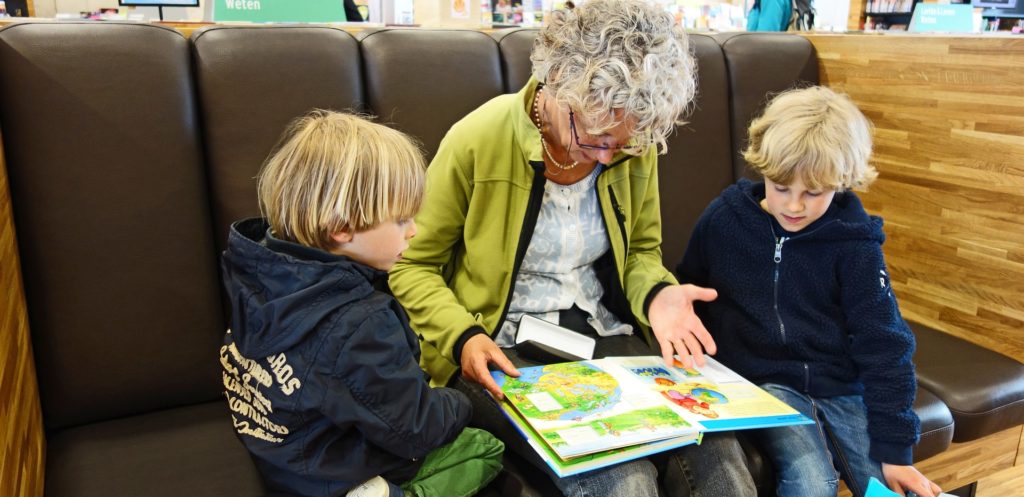- ‘Misguided campaign’ is being waged to outlaw parental alienation - January 31, 2024
- There is no moral equivalency between Israel and Hamas - November 14, 2023
- Why the Gaza war matters to the legal profession and law schools - November 7, 2023
By Paul Russell, LegalMatters Staff • Canadian courts need to recognize the important role grandparents play in their grandchildren’s lives when it comes to legal battles over access, says Toronto family lawyer Gene C. Colman.
“We should have a consistent philosophy throughout all family law that the best interests of the child is the only consideration in any legal matters. And as a general rule, cutting kids off from their grandparents is abusive to the child,” says Colman, principal of the Gene C. Colman Family Law Centre.
Under the current case law, he says parents face no consequence if they cut off any contact their children have with grandparents.
“Parents are perpetuating that abuse with the full blessing of our courts,” Colman tells LegalMattersCanada.ca, pointing to numerous rulings and legal documents.
Parents have ‘decision-making authority’
For example, in 2007 the Nova Scotia Law Commission stated: “In the absence of a finding of parental unfitness, or harm flowing from the lack of access, the state has no right to interfere with parent’s proper decision-making authority.”
In a 2017 B.C. provincial court decision, the judge denied a step-grandparent’s request for more time with a three-year-old grandchild, ruling that “while parents might not always make the right decision, it is not always the court’s job to second guess and usurp the parent’s role”
Colman says he strongly disagrees with that analysis.
“As a society, via our legal system, we interfere all the time with parental autonomy, whether through our child protection system or even between parents, when the courts marginalize one parent, usually the dad, often for not good reasons,” he says.
“In most parenting cases, best interests trump everything, but when it comes to grandparents, the courts revert back to putting parental autonomy first, which is neither consistent nor fair to the grandparent or grandchild,” Colman adds.
He says he is not advocating for grandparents to be given the power to seize control in the raising of children.
‘We don’t want to change any more diapers’
“Speaking as a grandparent of 14 grandchildren, I can attest we don’t want to change any more diapers,” Colman says. “We want to be grandparents, and get to know our grandkids and spoil them a bit, within the limits set by their parents. But Ontario courts should stop facilitating the alienation of children from their grandparents.”
This form of alienation was the focus of a recent webinar he hosted, with various court decisions and statutes discussed.
“A 2001 Ontario Court of Appeal decision, Chapman v. Chapman, is the starting point of any analysis of grandparents’ access rights,” Colman told webinar participants. “If the parents are ‘demonstrably attentive’ to children’s needs, then the parents make the decisions re ‘extent and nature of the contact.’ These decisions include those about whom the children see, how often, and under what circumstances.”
He says he hopes a judge takes the time to read the social science research underscoring the importance of grandparents in a child’s life, and decide the verdict in Chapman v. Chapman was incorrect.
‘Grandchildren really do need their grandparents’
“I trust that a case will come forward where a grandparent, who has acted reasonably but was arbitrarily denied access to their grandchild, winds up at the Court of Appeal so we can revisit Chapman v. Chapman,” Colman says, acknowledging his viewpoint is not widely embraced.
“I can’t find any other lawyers or judges making this argument,” he says. “I really take exception to the way the law is today and hope that it will be changed, as grandchildren really do need their grandparents.”
There have been some judgments that recognize the positive role of grandparents, Colman says, such as a 2004 Ontario Court of Justice ruling, where the judge noted: “It is always important to defer to the decisions of parents regarding their children. But deference is only accorded when those decisions are reasonable. When the decision to end all contact between a child who has a positive relationship with grandparents, aunts, uncles, cousins and great aunts and grandmothers is made entirely because of hurt feelings from 3 to 5 years ago, then the decision is not reasonable and is no longer entitled to deference.”
“If you are a parent and you are denying your parents access to your kids because of an argument years ago, grow up,” he says. “Your kids have a right to know their grandparents, to get that family tradition and to hear the funny stories about what the parents did when they were kids.”
‘Be a peacemaker, not a troublemaker’
Grandparents also need to shoulder some of the burden in cases of estrangement, Colman says, as in some cases their poor parenting skills may have led to the current problems.
“As a grandparent, be a peacemaker, not a troublemaker,” he says. “As long as you adhere to that common-sense maxim, then you should be allowed a relationship with your grandkids.”
He invites the public to view his past webinars on parental alienation, equal shared parenting, fathers’ rights and COVID-19, with links to PowerPoints and speaking notes for all webinars available on the firm’s events page.

